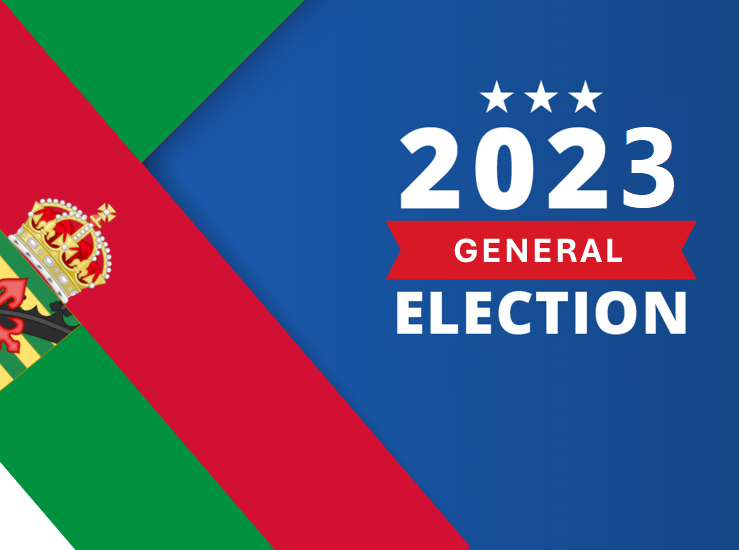Micronationalism: A Commitment to Practice
- Ministry of Information and Propaganda

- 6 de jul.
- 4 min de leitura

The term micronationalism, coined no earlier than 1976, refers to any self-proclaimed sovereign state without international recognition that is treated differently to a state with limited recognition. And that is all that micronationalists agree on. Effectively, a micronation is an entity that mimics the functioning of a nation-state. Beyond that, there is no unanimously accepted definition of what constitutes or not micronationalism. However, this has never stopped anyone from trying. Some micronationalists establish their own criteria, individually. Others gather in groups with representatives from several micronations in order to establish criteria that larger groups can follow so as not to conflict. The discussion of this phenomenon and this search for definition, constitution and legitimacy has generated a field of social study called "micronationalism". Initially, predating the coinage of the term "micronationalism", the idea of a micronation already existed in other forms, such as the Principality of Hutt River, which emerged as a last-ditch measure by an Australian farmer against the government of his province over grain quotas. Examples of this genre have sometimes made micronationalism appear as secessionist movements—which exist, as in the case of Liberland and Sealand, which actively fight the claims of recognized sovereign states over the territories they claim—but most micronations, historically, although they claim to be sovereign states, do not fight the countries from which they proclaimed their independence and admit their existence as a hobbyist practice; notwithstanding, these micronations have earned the label of "secessionist". Secessionist micronations are the most common because of their practicality: the micronationalist can claim his own property or territory that he is effectively able to administer as the territory of his micronation, which gives him a veneer of legitimacy to claim sovereignty—although this find no basis in international law. Other types of micronations, of course, exist, such as those that claim unpopulated territories, those that seek disputes over terra nullius to give some legitimacy to their claim, those that do not claim territory and exist only as entities that claim sovereignty (something similar to the Order of Malta), those that claim fictional territories or that exist only within online games, and those that claim populated territories, which they do not control, without the knowledge of the inhabitants. These last two are respectively called geofiction and simulationism.
Due to the nature of secessionist micronationalism, which views and treats micronations as sovereign states equivalent to any other recognized sovereign states—even while admitting the futility of their claim to sovereignty, micronationalists who adhere to this strand of micronational practice often conclude that a true sovereign state would never recognize as equal an entity that claims territory that does not exist or that pretends to control an area and population that it does not control. Thus, secessionist micronationalists often follow a kind of social contract by which their micronations do not recognize as sovereign micronations or microstates those that fall into the categories of geofiction and simulationism, as explained above. Historically, this commitment among micronationalists has sometimes been formalized between numerous micronations through pacts and treaties made spontaneously or in intermicronational organizations—the diminutive equivalent of international organizations; to cite a few major examples, the Wrythe Convention and the Treaty of Persenburg. These documents establish what their signatory states recognize as a micronation, taking this position from the perspective that if a micronation is merely a small, unrecognized nation, it must act as a nation would act and recognize as equal only its peers. This further invokes the etymology of the term "micronation" which is not, but rather, "small, microscopic nation." The drawing of this line between what is and what is not a micronation has generated, and continues to generate, debate among micronationalists. Some recognize simulationism and geofiction as micronationalist trends, others as similar practices, but which do not fit within the scope of micronationalism—at least not as seen by secessionist micronationalists. They do not, however, denounce simulationism and geofiction as invalid activities; after all, both this and secessionist micronationalism are hobbies, nothing more. But sometimes secessionists and simulationists, especially, clash and try to delegitimize each other. For the Kingdom of Ebenthal, then, what is micronationalism?
It is the understanding of our state and successive governments, as tacitly agreed among its members and by treaties signed with other micronations (such as the Treaty of Persenburg, the Wrythe Convention and the Mauritsstad Convention), that a micronation is, after all, an entity that claims sovereignty and, by claiming territory and population, has control, administration or management over the claimed territory and registers as its population only those who are aware of their status as citizens or otherwise affiliated with that entity. In doing so, Ebenthal adheres to the overwhelming majority of micronations in the world and to many other secessionist micronations of Brazilian origin (secessionism, which in Portuguese is called derivatismo) and commits to a serious, but also fun and healthy practice of micronational activity as it is.
We are not here to pedantically lay out our definition of micronationalism for others to follow or denounce those who follow other strands originating from this practice as inferior or illegitimate. We simply follow, as the sovereign state that we claim to be, the parameters that are well defined and well accepted by the vast majority of the micronational community in order to continue our existence as free as possible from petty conflicts. And through this text we reaffirm this commitment.
Long live Ebenthal! Long live The King!





Comentários